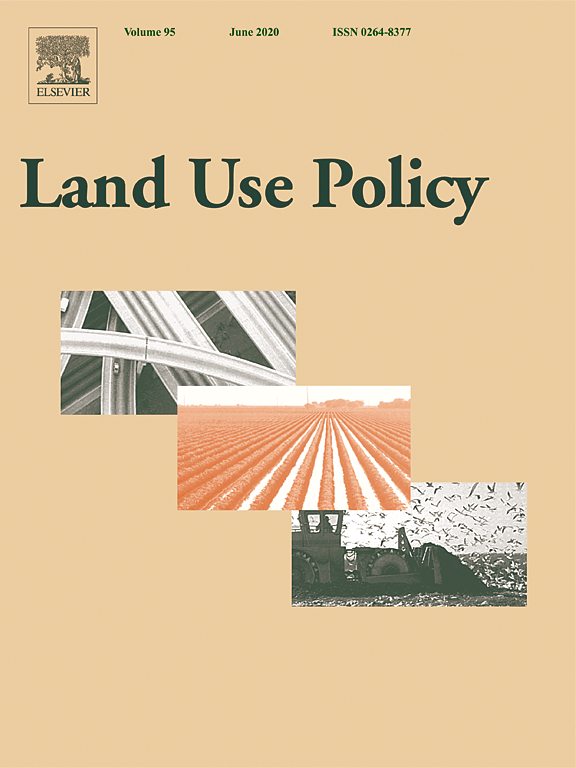Location
Land Use Policy is an international and interdisciplinary journal concerned with the social, economic, political, legal, physical and planning aspects of urban and rural land use. It provides a forum for the exchange of ideas and information from the diverse range of disciplines and interest groups which must be combined to formulate effective land use policies. The journal examines issues in geography, agriculture, forestry, irrigation, environmental conservation, housing, urban development and transport in both developed and developing countries through major refereed articles and shorter viewpoint pieces.
Land Use Policy aims to provide policy guidance to governments and planners and it is also a valuable teaching resource.
ISSN: 0264-8377
Members:
Resources
Displaying 151 - 155 of 279Push–pull farming system in Kenya: Implications for economic and social welfare
This study examines the farm-level economic benefits and aggregate welfare impacts of adopting push–pull technology (PPT)—an innovative, integrated pest and soil-fertility management strategy—with a set of household- and plot-level data collected in western Kenya. The evaluation is based on a combination of econometric and economic surplus analysis. Treatment effect estimates are used to assess the technology-induced shift in the maize supply curve, which is then used as an input to the economic surplus analysis.
Agricultural landscapes, ecosystem services and regional competitiveness—Assessing drivers and mechanisms in nine European case study areas
Agricultural landscapes affect regional development and competitiveness in a way far beyond the production of agricultural commodities. However, comprehensive assessments of the relevant cause-effects between agricultural landscape and regional competitiveness are complex and they require a range of ecological, economic and social aspects to be considered.
Governance arrangements, funding mechanisms and power configurations in current practices of strategic spatial plan implementation
Implementing strategic spatial plans is a complex task. The process involves strategy formation, institutional capacity building, funding mechanism establishment and governance arrangements, which take shape within complex power configurations. Based on empirical evidence gathered by interviewing regional planning experts, this paper focuses on the role of governance arrangements and funding mechanisms in current practices of strategic plan implementation in 14 European urban regions.
Modelled impacts of policies and climate change on land use and water quality in Austria
Climate change is a major driver of land use with implications for the quality and quantity of water resources. We apply a novel integrated impact modelling framework (IIMF) to analyze climate change impacts until 2040 and stakeholder driven scenarios on water protection policies for sustainable management of land and water resources in Austria. The IIMF mainly consists of the sequentially linked bio-physical process model EPIC, the regional land use optimization model PASMA[grid], the quantitative precipitation/runoff TUWmodel, and the nutrient emission model MONERIS.
Acceptance studies in the field of land use—A critical and systematic review to advance the conceptualization of acceptance and acceptability
Despite the increasing importance of studies dealing with acceptance in the field of land use, few theoretical-conceptual reflections and reviews have been published. To address this gap, this paper offers a critical and systematic review of recent literature regarding acceptance and land use. Our aim is to synthesise the contributions of these publications in order to advance scientific debate on this topic. The data set consists of 132 peer-reviewed journal articles and book chapters and is dominated by empirical papers (mostly quantitative studies) and European case studies.



